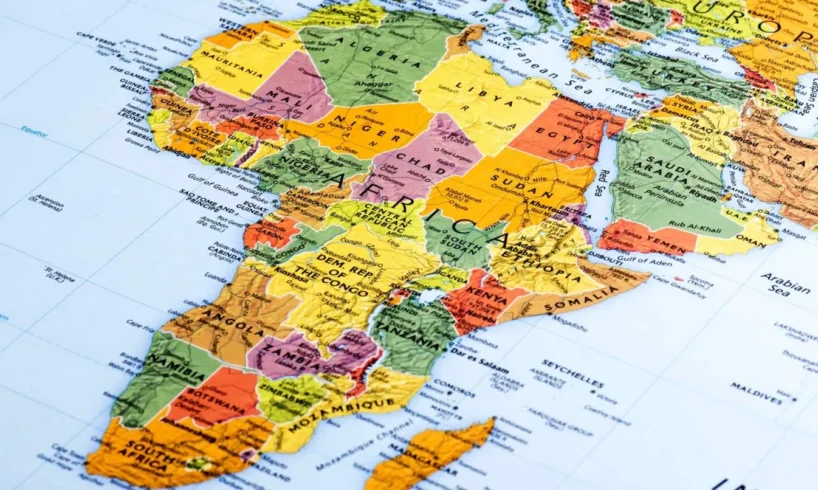
Egypt advanced reconstruction diplomacy in Sharm el-Sheikh, while Morocco’s fiscal deficit widened sharply and Nigeria tabled a crude-supply bill to favor domestic refiners.
Senegal’s diaspora bond issue exceeded expectations; fighting escalated in eastern DRC as Gabon deepened resource nationalism; Ethiopia’s poverty outlook worsened; Kenya costed its aviation-biofuel plan; South Africa reshaped regional air deployments; and Zambia accelerated a PPP transport upgrade.
North Africa
Egypt: Sharm el-Sheikh summit shifts from ceasefire to reconstruction finance
Egypt hosted a high-level meeting on Gaza’s reconstruction alongside the Sharm el-Sheikh Peace Summit, gathering leaders from Europe, the Gulf, and North America.
Cairo positioned itself as coordinator for access, crossings, and donor alignment for the post-war phase. The talks also mapped Egyptian contractor participation in housing, power, and logistics works once conditions allow.
Why it matters: Control of the reconstruction framework will channel billions in regional contracting and reinforce Egypt’s diplomatic leverage and FX inflows.
Morocco: Treasury deficit doubles to MAD 50.5bn ($5.49bn) by end-September
Finance Ministry data show a year-to-date central-government cash deficit of MAD 50.5 billion ($5.49 billion), about twice the same period in 2024.
The widening gap reflects spending growth outpacing revenue recovery, adding pressure on domestic bond issuance and external borrowing. Investors are watching Rabat’s 2026 budget path and any new Eurobond timing.
Why it matters: A looser fiscal stance could lift yields, crowd out private lending, and test Morocco’s investment-grade momentum.
Africa Intelligence Brief — October 13, 2025. (Photo Internet reproduction)
West Africa
Nigeria: Bill to guarantee crude supply for local refineries
Parliament is drafting a “Refinery Protection and Promotion Bill” requiring producers to prioritize domestic crude supply before exports.
The proposal aims to stabilize feedstock flows for new private and modular refineries, including the 650 kbd Dangote facility. Regulators may need to adjust pricing formulas to balance upstream incentives.
Why it matters: Reliable supply will determine the success of Nigeria’s downstream reform, impacting fuel imports, FX reserves, and inflation expectations.
Senegal: Diaspora bonds raise CFAF 450bn ($795m), 150% above target
The third public savings issue (APE 3) closed at CFAF 450 billion ($795 million) after strong demand from residents and the diaspora.
Authorities described the uptake as validation of reforms and domestic investor confidence. Proceeds will help fund infrastructure, education, and healthcare projects under the 2025–26 plan.
Why it matters: Oversubscription eases near-term financing stress, expands the investor base, and strengthens Senegal’s case for future global-market access.
Central Africa
DRC: Fighting intensifies in Rutshuru, North Kivu
Armed clashes between AFC-M23 and Wazalendo militias persisted near Mashango and Kibwe, sending civilians toward Bukombo.
Local coverage reported sustained shelling that disrupted aid convoys. Civil demonstrations in Beni highlighted frustration with government security efforts.
Why it matters: Renewed conflict jeopardizes humanitarian corridors, raises insurance and logistics costs, and complicates mining-sector supply routes.
Gabon: State oil firm regains control of Dinonga-Irondou block
Gabon Oil Company signed a new exploration-and-production sharing contract to take over the Dinonga-Irondou field from a foreign operator.
The move is part of a wider strategy to expand state stakes in key upstream assets while tightening oversight. Fiscal terms were not disclosed.
Why it matters: Greater state control can raise near-term revenue but may deter private investment, influencing Gabon’s upstream growth trajectory.
East Africa
Ethiopia: Poverty projected to reach 43% in 2025
A new World Bank assessment warns that 43 percent of Ethiopians could live below the $3/day (2021 PPP) line by year-end, up sharply from pre-war levels.
Conflict, inflation, and high food prices are reversing gains in poverty reduction. Authorities plan to re-target subsidies while courting industrial investors.
Why it matters: Rising poverty narrows consumer demand and increases fiscal risk, making stabilization harder for lenders and corporates alike.
Kenya: Aviation biofuel plan requires KSh 30.45bn ($236m)
A government-commissioned study estimates Kenya needs KSh 30.45 billion ($236 million) to build facilities producing 4,000 bpd of sustainable aviation fuel from used cooking oil and castor feedstocks.
Policymakers aim to attract PPP funding and export SAF regionally. Kenya Airways’ earlier SAF trials provide a technical base for scaling.
Why it matters: Domestic SAF production could reduce fuel imports, create green-industry jobs, and anchor Kenya’s energy-transition credentials.
Southern Africa
South Africa: Oryx helicopters return from DRC deployment
Three South African Air Force Oryx transports flew home from Goma via Livingstone, with two more due later. The rotation follows a UN mission drawdown and better fleet readiness. Officials said maintenance indicators are improving across multiple airframes.
Why it matters: Redeployment enhances availability for regional peacekeeping and disaster response while trimming external mission costs.
Zambia: Lusaka–Ndola PPP highway upgrade accelerates
The Road Development Agency reported intensified work on the Great North Road dual-carriageway concession connecting Lusaka and the Copperbelt to the DRC border. Temporary lane closures and diversions are expected through Q4. Authorities hailed the project as a test case for PPP delivery discipline.
Why it matters: Faster progress on this corridor will cut transport costs for copper and agricultural exports, improving Zambia’s competitiveness and regional trade flows.





